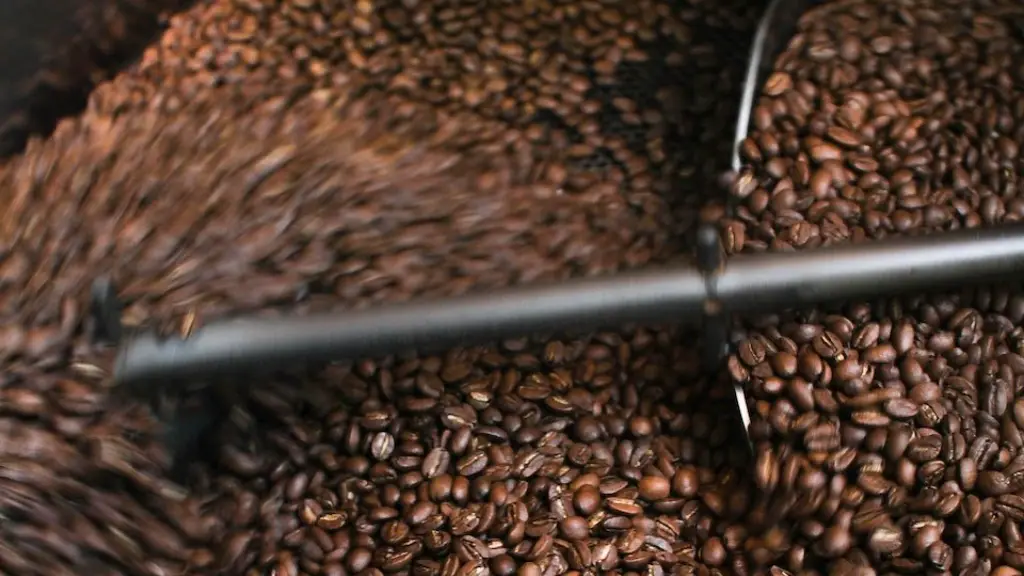Coffee and Constipation
Coffee is a popular beverage that many people drink on a daily basis. However, when someone is constipated, should they limit or avoid coffee? Many people think that coffee can help relieve constipation but is that actually the case? Coffee can have both positive and negative impacts on constipation and understanding both aspects is necessary to make the right decision.
Drinking coffee can slightly increase the amount of liquid intake, which can be helpful if a person is constipated due to dehydration. Coffee can also stimulate a person’s gut, potentially increasing the contractions which pass the stool along the intestine. Coffee can also help in the digestion of other foods, providing more nutrients for the body. On the other hand, coffee is a diuretic, meaning that it can actually draw water from the body and as a result, it may worsen constipation.
Therefore, it is important to evaluate the individual’s overall health, diet, and other potential factors. Depending on the state of the person, different recommendations may be made. For example, if someone is dehydrated and severely constipated, drinking a small amount of coffee may be helpful. On the other hand, if someone is already drinking enough water and doesn’t suffer from dehydration, drinking coffee can worsen their symptoms.
With regards to quantity, experts recommend limiting the amount to 2 cups per day. People should also opt for black coffee instead of coffee with added creamer or flavored syrup as these can be high in sugar, which can further worsen constipation. If people are particularly sensitive to the caffeine in coffee, they may want to consider decaf.
It is also important to consider if the individual’s constipation is due to a dietary or lifestyle issue. In such cases, drinking coffee is not likely to help, and it may even worsen the symptoms. Coffee can mask the underlying issue and slow the healing process. Rather, it would be better to look for other solutions such as increasing dietary fiber or making lifestyle changes, such as learning to manage stress better and exercising more.
In conclusion, it can be said that for some people, drinking a moderate amount of coffee may be beneficial in relieving the symptoms of constipation. However, for others, it may aggravate the issue. It is important to evaluate each individual’s case and make the decision based on their overall health and lifestyle.
Alternative Methods to Relieve Constipation
Although drinking coffee can potentially relieve constipation, there are multiple methods that can be used instead. Increasing dietary fiber can be a great option to help pass the stool faster and ease constipation. Aiming for around 30g of fiber is a good start. Foods such as fresh fruits, vegetables, and whole grains are great sources of fiber.
Drinking plenty of liquid can help to prevent and alleviate constipation. Water is an excellent choice, but other drinks such as herbal teas, smoothies, and soups can also be beneficial. It is important to note that some beverages, such as caffeinated drinks, may contribute to dehydration and should thus be limited.
Increasing physical activity can also be helpful in relieving constipation. Movement stimulates the contractions which propels the stool along the intestine. Stretching, some light cardio, and even yoga can all help to pass the stool faster. It is important to note that too much exercise can cause further dehydration, so it is best to avoid overly strenuous activities.
Managing stress better is another factor to consider. Stress can interfere with healthy digestion and cause constipation. Taking a few deep breaths and finding relaxation techniques can help to alleviate both stress and constipation. Additionally, massage can help to stimulate the intestine, leading to smoother movements and regularity.
Finally, probiotics are a great method to help ease toxins and improve digestion. Many probiotics contain certain bacteria which are beneficial in aiding the digestion process. There are a variety of different probiotic products available, so finding one that works best is a personal choice.
Expert Perspectives on Coffee and Constipation
According to experts, drinking coffee in moderation can potentially assist in relieving constipation in some people. However, drinking too much coffee can cause harm as it increases dehydration and may worsen the symptoms. Doctors also warn that coffee should not replace other treatments as it could mask the underlying issue. Ultimately, this is a case-by-case scenario and people should consider their own condition before deciding to increase or decrease their coffee consumption.
Gastroenterologist Dr. Shilpi Agarwal also suggests that cutting down on coffee and increasing fiber intake may help constipation. She suggests increasing consumption of fermented foods such as sauerkraut and kimchi as well as taking in more omega-3 fatty acid, which can support the colon muscles. Ultimately, she claims that the combination of both lifestyle and dietary changes should benefit constipation.
On the other hand, Dr. Taylor Wallace, a nutrition scientist from the University of Tennessee, believes that coffee can be a useful tool for relieving constipation. He suggests that for mild cases of constipation, drinking 1 to 2 cups of coffee a day can help to ease symptoms. He advises people to focus on drinking black coffee as this eliminates the risk of any added sugar or other ingredients which can worsen symptoms.
Overall, it appears that both experts agree that drinking coffee should be used as a last resort and other methods should be attempted or at least considered first. They both also say that drinking coffee excessively is not beneficial, and if someone is looking to increase their coffee intake, they should talk to a healthcare professional first.
Coffee and Dehydration
Dehydration is one of the main causes of constipation and it is important to be aware of this when considering coffee. As mentioned earlier, coffee can be both a diuretic and a stimulant. When a person drinks coffee, it can cause them to urinate more, thus causing more dehydration and potentially more constipation. Therefore, it is important to compare the effects of increased water intake to that of increased coffee intake.
It is important to balance the amount of coffee with the amount of water so that a person doesn’t end up in a cycle of increasing dehydration and worsening constipation. In such cases, it would be more beneficial to focus on increasing the amount of water and decreasing the amount of coffee consumed.
In addition to this, dehydration can also cause headaches, digestive issues, muscle soreness, and fatigue. If any of these symptoms are present, it is important to drink plenty of water to prevent them from getting worse. Another important thing to consider is that coffee itself can also cause dehydration and it is best to limit the amount consumed in order to reduce this risk.
If a person does not want to give up their beloved coffee, they can counter the effects of dehydration with electrolytes, which can help to restore the amount of liquid in the body. Additionally, sports drinks, coconut water, and even dark chocolate can also help to restore lost electrolytes in the body.
Other Benefits of Coffee
Although there is caution needed when it comes to coffee, it should also be noted that there are a range of other health benefits associated with it. For example, coffee can provide energy which can help a person to be more productive. Additionally, it can improve mental focus, alertness, and creativity.
Furthermore, various studies have found that coffee can also improve physical performance such as running, cycling, and even strength training. Studies have also found that coffee can reduce inflammation and it contains polyphenols which act as antioxidants, protecting the body from damage due to free radicals.
Additionally, there are also several studies which have found that moderate coffee intake can reduce the risk of some chronic diseases, such as heart diseases and type 2 diabetes. Coffee can even reduce the risk of stroke and some types of cancer. Ultimately, there are a wealth of benefits associated with coffee and understanding these can be helpful in making an informed decision.
Factors to Consider When Drinking Coffee
Ultimately, it is important to consider multiple factors when drinking coffee. It is best to avoid drinking to excess as this can worsen dehydration and worsen existing constipation. Additionally, people should opt for black coffee and avoid adding sugar, creamers, and other ingredients which can increase the risk of dehydration and worsen constipation.
Furthermore, it is important to consider if coffee is providing the only solution and if any underlying causes are being overlooked. In such cases, it is important to seek professional help and look for other methods to address the root cause of the issue. It is also important to consider other methods to address constipation, as mentioned earlier, such as increasing dietary fiber and physical activity.
Finally, people should also keep in mind that when it comes to coffee, as with any other food or beverage, it is best to make an informed decision and decide what works best for them. Everyone is unique and what works for one person might not necessarily work for another. Therefore, considering one’s own individual condition and understanding what works best is important when it comes to consuming coffee.





